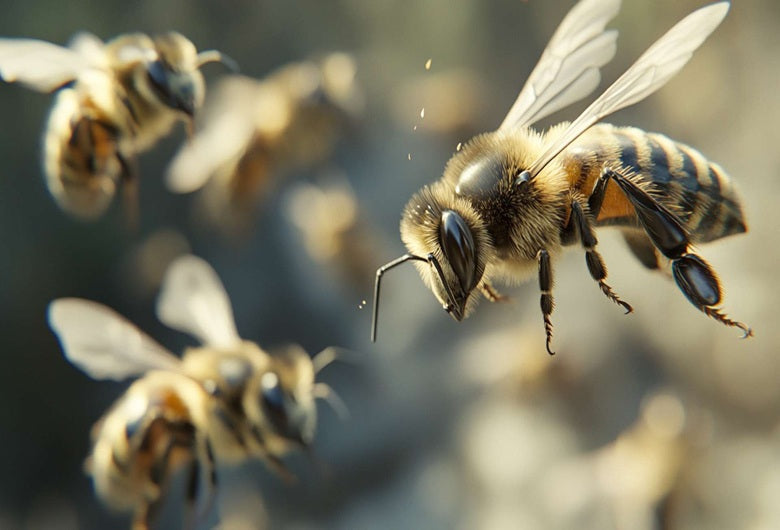Bees and Brain Health
Posted by SUNNY RODHEY

You’ve probably heard the alarming news stories about the die-off of bee colonies across the globe. Bees are essential pollinators, and their decline poses serious risks to agriculture and the environment. But here’s something you may not have considered: if you’re concerned about your brain health, this story should also be on your personal front page.
Scientists who study the environmental contaminants harming bee populations are now warning that these same toxins may also threaten human brain health. Many pesticides and chemical exposures linked to “colony collapse disorder” in bees are neurotoxic — meaning they interfere with nerve signaling and brain function. While bees experience this impact on a smaller scale, the underlying danger to humans is very real.
These toxins can contribute to oxidative stress, mitochondrial dysfunction, and inflammation in the brain — the very same processes associated with cognitive decline and neurodegenerative diseases like Alzheimer’s. In other words, the chemicals strong enough to disorient bees and disrupt their navigation systems may also, over time, impair memory, focus, and long-term brain resilience in people.
This research underscores an important truth: environmental health and human health are deeply interconnected. Protecting pollinators like bees isn’t just about saving ecosystems — it’s also about creating cleaner, safer environments for our own brains to thrive.
Practical Ways to Protect Both Bees and Brain Health
-
Choose organic when possible: Organic produce is grown without the harmful pesticides linked to both bee die-off and neurotoxicity in humans.
-
Support pollinator-friendly farming: Look for local farms and products that use regenerative and sustainable practices.
-
Reduce chemical exposure at home: Swap out synthetic pesticides, herbicides, and cleaners for natural alternatives.
-
Eat a brain-protective diet: Antioxidant-rich foods like berries, leafy greens, and omega-3 sources help counteract oxidative stress from unavoidable environmental toxins.
-
Advocate and educate: Support initiatives that protect pollinators and raise awareness of the human health impacts of pesticides.
The takeaway? The story of bees is also the story of us. By protecting the environment from harmful contaminants, we’re not only safeguarding pollinators — we’re investing in the future of our own brain health and vitality.

